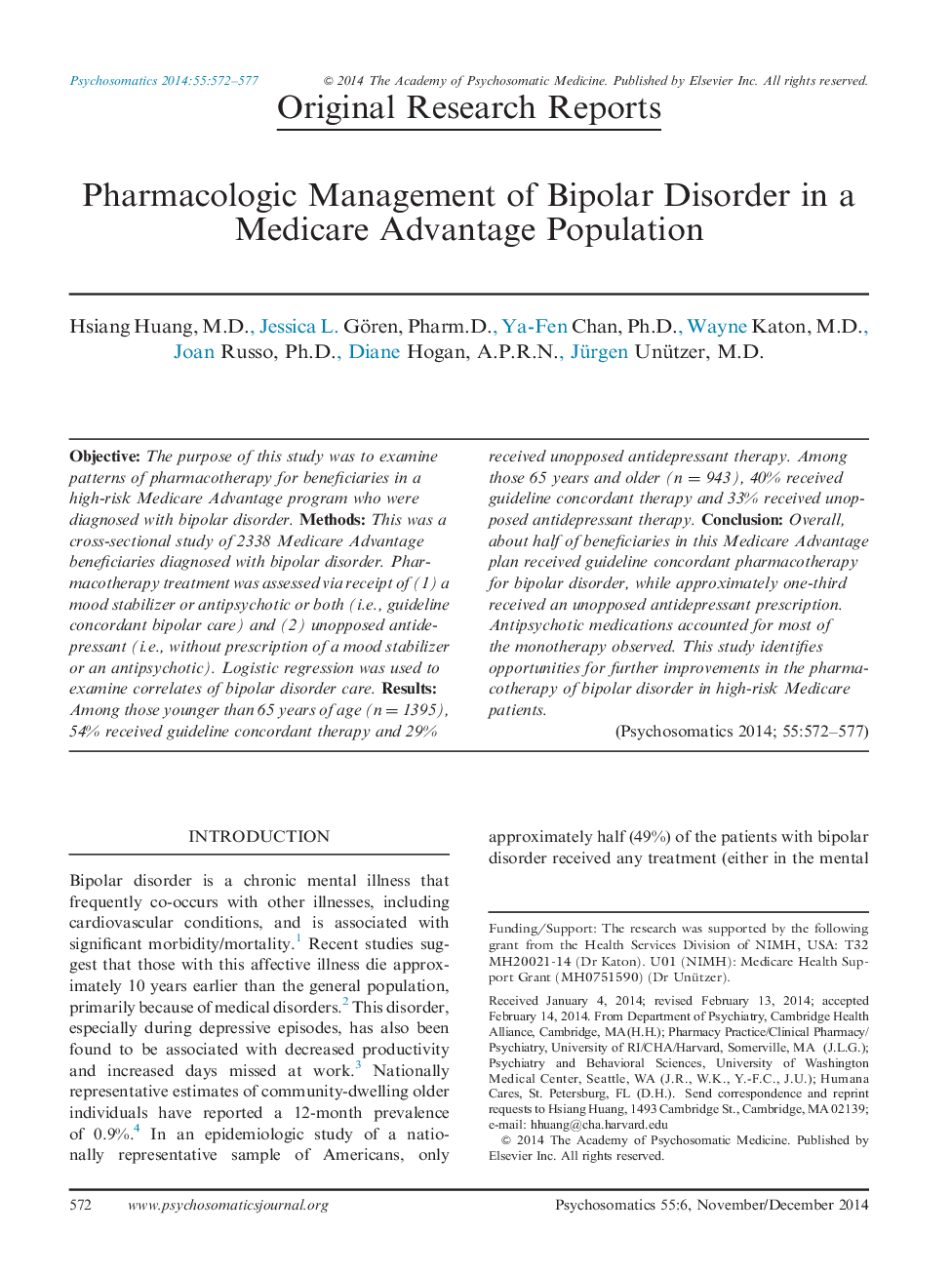| Article ID | Journal | Published Year | Pages | File Type |
|---|---|---|---|---|
| 337470 | Psychosomatics | 2014 | 6 Pages |
ObjectiveThe purpose of this study was to examine patterns of pharmacotherapy for beneficiaries in a high-risk Medicare Advantage program who were diagnosed with bipolar disorder.MethodsThis was a cross-sectional study of 2338 Medicare Advantage beneficiaries diagnosed with bipolar disorder. Pharmacotherapy treatment was assessed via receipt of (1) a mood stabilizer or antipsychotic or both (i.e., guideline concordant bipolar care) and (2) unopposed antidepressant (i.e., without prescription of a mood stabilizer or an antipsychotic). Logistic regression was used to examine correlates of bipolar disorder care.ResultsAmong those younger than 65 years of age (n = 1395), 54% received guideline concordant therapy and 29% received unopposed antidepressant therapy. Among those 65 years and older (n = 943), 40% received guideline concordant therapy and 33% received unopposed antidepressant therapy.ConclusionOverall, about half of beneficiaries in this Medicare Advantage plan received guideline concordant pharmacotherapy for bipolar disorder, while approximately one-third received an unopposed antidepressant prescription. Antipsychotic medications accounted for most of the monotherapy observed. This study identifies opportunities for further improvements in the pharmacotherapy of bipolar disorder in high-risk Medicare patients.
